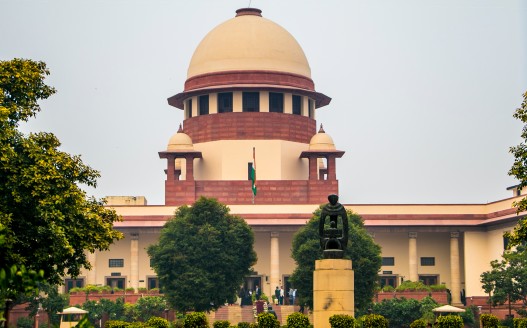The Supreme Court on Wednesday directed the Centre and the RBI to file comprehensive affidavits to justify the demonetisation decision of 2016, rejecting the government’s contention that the issue was now merely “academic” and any hearing would be a “waste of the court’s time”.
The apex court asked the Centre to place before it the communication issued to the RBI on November 7, 2016, recommending demonetisation.
The bench of Justices S.A. Nazeer, B.R. Gavai, A.S. Bopanna, V. Ramasubramanian and B.V. Nagarathna posted the matter for further hearing to November 9, by when the government and the RBI are expected to file their affidavits.
“We want to see them. You cannot keep them away from us. Also file a comprehensive affidavit,” Justice Nazeer, heading the bench, told attorney-general R. Venkatramani.
The bench brushed aside the suggestion by solicitor-general Tushar Mehta that the court need not deliberate on the academic issue and the precious time of the constitution bench need not be wasted.
“In order to answer the issues, we will hear and give an answer whether it is academic or beyond the scope of judicial review. The point in the case that we need to examine is the government policy and its wisdom, which is one aspect of the matter. We also know where the Lakshman Rekha is, but the manner over which it (demonetisation) was done has to be examined,” Justice Nazeer observed.
Senior advocate Shyam Divan, appearing for main petitioner Vivek S. Narayan, had objected to Mehta saying the matter was a “waste of time” and pointed out that the issue had been referred to the constitution bench after detailed arguments on the validity of the demonetisation policy.
Arguing for some of the petitioners, senior advocate and former Union finance minister P. Chidambaram sought a directive to the government to produce certain documents relating to the letter issued by the Centre to the RBI on November 7, the agenda of the RBI board meeting and the subsequent resolution approving demonetisation.
The court pointed out that the documents were relevant as the petitioners had challenged Section 26(2) of the RBI Act, which according to Chidambaram, empowered the Union government to cancel only certain series of currency notes and not that of the entire denomination.
“Show us where is the recommendation of the central government? Where is the consideration of the recommendations by the RBI? These are the things which you must answer,” the bench told Venkatramani.
The matter was referred to a five-judge bench in 2017 by a three-judge bench headed by then Chief Justice of India T.S. Thakur for authoritative pronouncement on over two dozen petitions challenging the validity of the demonetisation and the short window period offered to citizens to exchange the demonetised notes.
At that time, the apex court had stayed all proceedings against the demonetisation pending in various high courts, transferred to itself all the cases and referred the matter, including the constitutional validity of the demonetisation launched from November 8, 2016, to a five-judge bench.
The following issues would now be considered by the constitution bench:
- Whether the notification dated November 8, 2016, is ultra vires Section 26(2) and Sections 7, 17, 23, 24, 29 and 42 of the Reserve Bank of India Act, 1934; (all related to powers of the central government to demonetise legal currency.)
- Does the notification contravene the provisions of Article 300(A) of the Constitution (no person can be deprived of property without the authority of law)?
- Assuming that the notification had been validly issued under the RBI India Act, 1934, whether it is ultra vires Articles 14 (right to equality) and 19 (right to free speech, etc) of the Constitution.
- Whether the limit on withdrawal of cash from bank accounts has no basis in law and whether it violates Articles 14, 19 and 21 (right to life and liberty).
- Whether the implementation of the impugned notifications suffers from procedural and/or substantive unreasonableness and thereby violates Articles 14 and 19 and, if so, to what effect.
- In the event that Section 26(2) is held to permit demonetisation, does it suffer from excessive delegation of legislative power, rendering it ultra vires the Constitution?
- What is the scope of judicial review in matters relating to fiscal and economic policy of the government?
- Whether a petition by a political party on the issues raised is maintainable under Article 32 (right to move the Supreme Court for enforcement of a fundamental right. In the present case, the CPM has also filed a PIL challenging demonetisation).
- Whether district co-operative banks have been discriminated against by excluding them from accepting deposits and exchanging demonetised notes.
“Keeping in view the general public importance and the far-reaching implications, which the answers to the questions may have, we consider it proper to direct that the matters be placed before the larger bench of five judges for an authoritative pronouncement,” the apex court had said in an interim directive in 2017.











